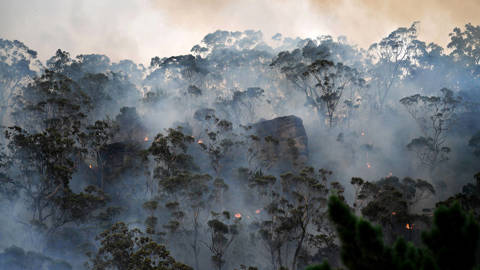Economic Crisis in the Anthropocene
The COVID-19 pandemic triggered the swiftest and most comprehensive contraction of global economic activity ever. With crises set to proliferate – not least because of climate change – the successes and failures of the pandemic response should serve as lessons for governments everywhere.
Listen and subscribe to all episodes from your favorite podcast app. Find Opinion Has It on Apple Podcasts, Google Podcasts, Acast, or via RSS Feed. Have a suggestion for an episode? Email us at podcasts@project-syndicate.org.
Transcript
Elmira Bayrasli: Welcome to Opinion Has It. I’m Elmira Bayrasli.
Archive Recording, Prime Minister Boris Johnson: Good evening. The coronavirus is the biggest threat this country has faced for decades. And this country is not alone.
Archive Recording, President Donald Trump: Today, the World Health Organization officially announced that this is a global pandemic.
Archive Recording, Queen Elizabeth II: I’m speaking to you at what I know is an increasingly challenging time.
EB: The COVID-19 pandemic has been unprecedented in many ways. It’s spread across the globe like wildfire, it brought the fastest contraction of global economic activity ever, and it spurred record-breaking government interventions.
Archive Recording: Congressional leaders appear to have reached agreement on what is by far the biggest stimulus package in US history.
